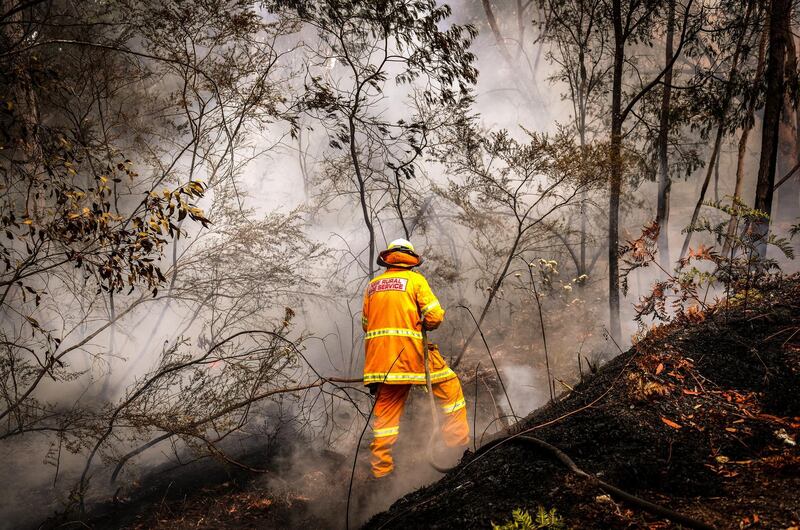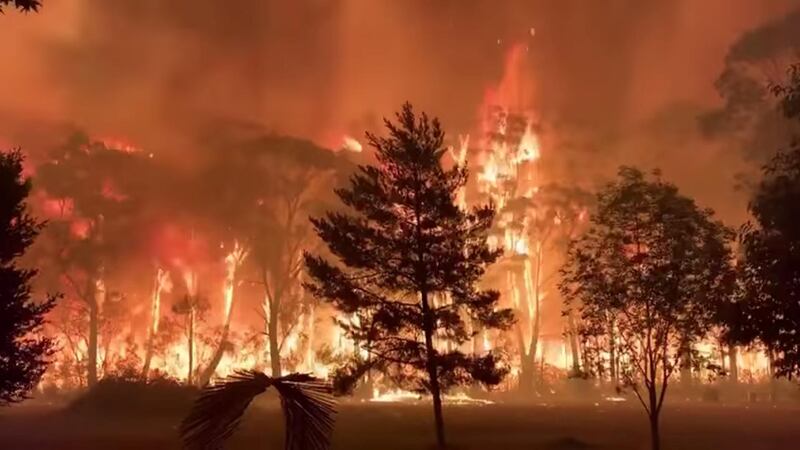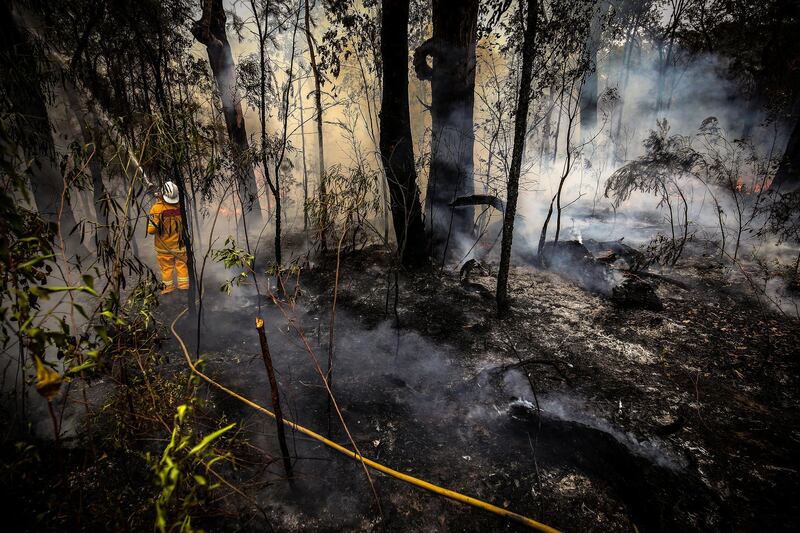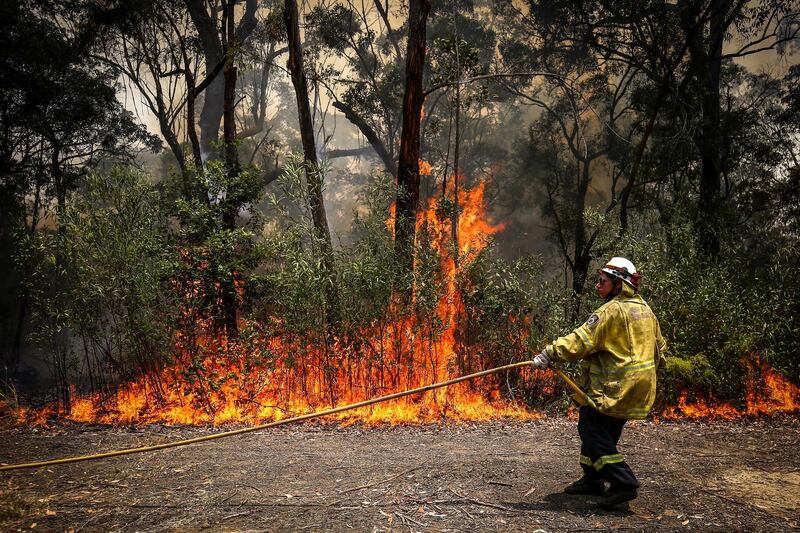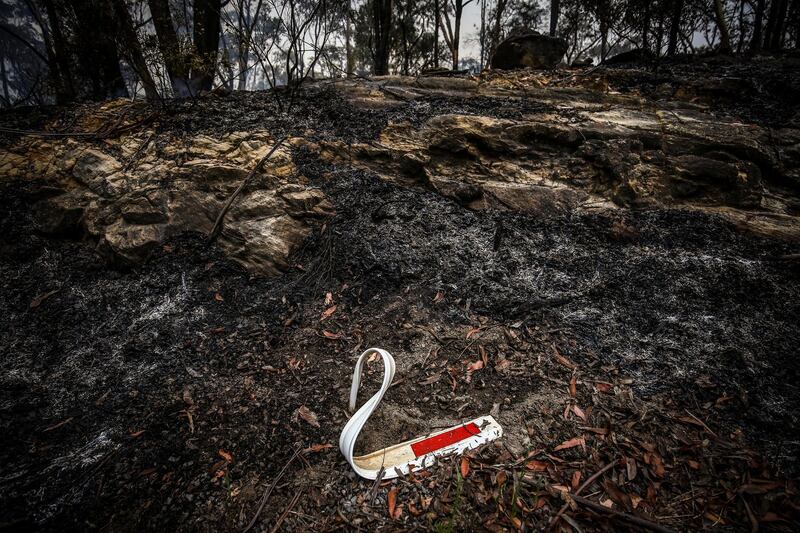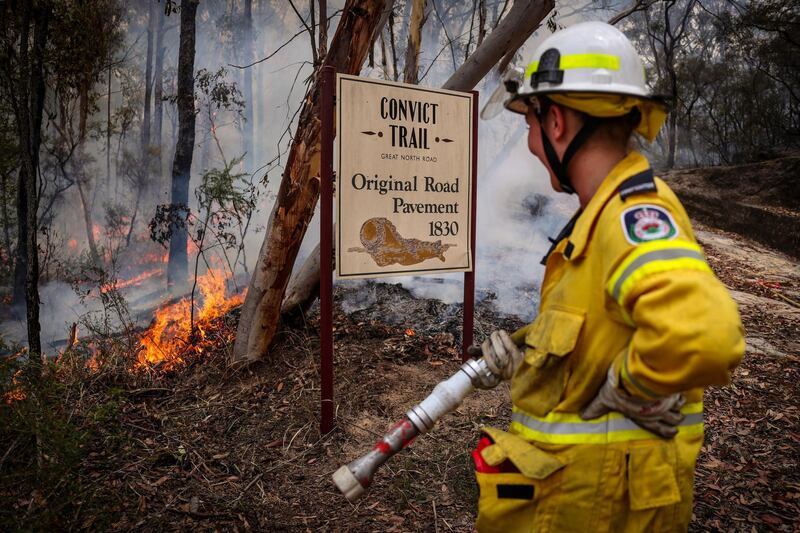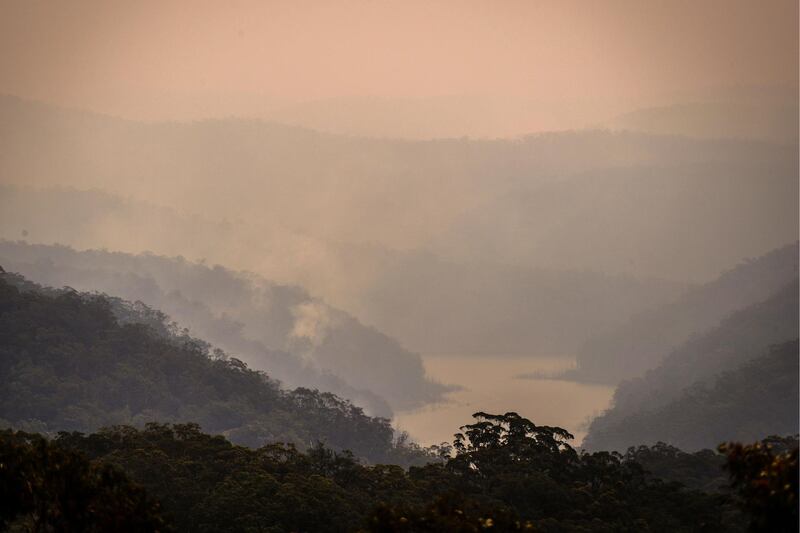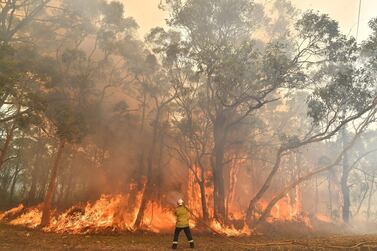Australia's biggest city is facing a "public health emergency" over the bush fire smoke that has choked Sydney for weeks, leading doctors warned on Monday.
The warning comes after hospitals reported a dramatic spike in casualty department visits.
Hundreds of climate change-fuelled bushfires have been raging across Australia for months. There are ongoing efforts to contain a "mega-blaze" burning north of Sydney that has destroyed an estimated 20 homes overnight and fires near Perth are threatening towns.
More than 20 medical groups including the Royal Australasian College of Physicians — which represents 25,000 doctors and trainees — released a joint statement on Monday calling on Australia's government to address the toxic air pollution.
"The air pollution in New South Wales is a public health emergency," the Climate and Health Alliance said.
"Smoke from bushfires has produced air pollution of up to 11 times the base 'hazardous' level in parts of Sydney and New South Wales.
"Bush fire smoke is particularly hazardous because of the high levels of tiny particles [PM2.5]."
The New South Wales state health department said it recorded a 48 per cent increase in the number of people visiting hospital emergency rooms with respiratory problems in the week ending December 11 compared to the five-year average.
Visits spiked 80 per cent on December 10, when air quality plummeted across Sydney prompting up to 20,000 residents to march in protest the following day.
The Climate and Health Alliance called on the government to take urgent action to curb emissions, saying climate change is worsening bushfires that are having "devastating impacts on human health".
"The air pollution events resulting from bushfires will become more and more frequent and are a result of climate change," it said.
"Our governments must act quickly to rapidly and deeply reduce greenhouse gas emissions, which we know are driving climate change."
Prime Minister Scott Morrison last week made a rare admission that climate change is one of the "factors" behind the fires, but defended Australia's record on emissions reduction and failed to announce further measures to address the issue.
So far six people have been killed, more than 700 houses have been destroyed and at least three million hectares (7.4 million acres) of land has been burnt this bush fire season.
More than 100 fires are currently burning in New South Wales, where efforts to contain a 400,000-hectare blaze near Sydney using backburning (starting small fires in front of a main fire to deplete available fuel) are believed to have sparked another fire that destroyed an estimated 20 homes.
A New South Wales Rural Fire and Rescue Service spokeswoman told AFP the fire was "likely the result of embers from the backburning operation" but that work had been "absolutely critical" and many more homes could have been lost without it.
Official data shows 2019 is on track to be one of the hottest and driest years on record in Australia, with the country set to experience a heatwave this week that forecasters predict will break temperature records.
